Introducing our brand-new series: Bold Predictions. We’ll dive into Eurovision countries, recap their highs and lows, and dare to forecast what might be coming next. Yes, we’re going there.
And next we’re heading to the Netherlands — a country that bring power ballads as well as country bops. It introduced Sranan Tongo in the world of Eurovision languages. But it has also sung in English like it was the country’s native language. The Benelux nation has five victories to its name, with the most recent being in 2019. However, the Netherlands relationship to Eurovision stays ambivalent. With Eurovision 2026 around the corner, it’s time to look back, think ahead, and make some bold predictions.
The Netherlands at the Eurovision Song Contest
The Eurovision Eras
1956-1990: Hippies, Dutch chanson and female icons
Like many countries, the Netherlands knew more successful periods and weaker times results-wise.
The Netherlands was one of the founding parents of the song contest back in 1956. Lovers of French chanson and classical light entertainment, the Dutch fit right in at Eurovision. It came to no surprise that the Netherlands forked out two victories within four years. Then the 1960s arrived. While Eurovision slowly developed itself into a pop contest, the Netherlands was left stuck with more old-fashioned cabaret entries. Despite that, many of the contest’s songs became major radio hits in the country.
But at the end of the decade, 19-year-old Lenny Kuhr performed her self-written “De troubadour” and scored the country’s third victory.
Teach-In — a group of fashionable hippies akin ABBA from the eastern Netherlands city of Enschede — brought home the country’s fourth victory in 1975.
After that, the Eurovision Song Contest moved into another era of Europop glamour and an increasing focus on refined pop melodies. The Netherlands, again, did not get the memo and found it hard to catch up. Whereas music at home was defined by punks, it became increasingly harder to find the right fits for Eurovision’s framework. Notable exceptions are of course, Maggie Macneal‘s ballad “Amsterdam” and the Pieter Koelewijn-penned “Rechtop in de wind”, performed by Marga Bult.
1991-2015: Fluitsma & Van Tijn, ups and many downs
As the 1990s rolled on and Eurovision became more classical again, it was the Netherlands who suddenly pioneered. But not just the Netherlands, but composer’s duo Fluitsma & Van Tijn — who won two national finals, in 1993 (Ruth Jacott) and 1998 (Edsilia Rombley). With those songs (“Vrede” and “Hemel en Aarde”), the country managed to find the right balance between the old-school orchestra, modern Dutch pop music and a flavour of hip hop.
But by the turn of the century, the country again did not get the memo that Eurovision had moved on musically. While Helena Paparizou brought her Greek Eurohit “My Number One” — including an eye-catching performance — the Netherlands sent an old-fashioned ballad. The same thing happened two years later when Edsilia Rombley sang a dated pop effort, competing in a Eurovision dominated by Marija Šerifović and Verka Serduchka.
As the financial crisis hit Europe in 2008 and Eurovision ratings hit an all-time low in the Netherlands, a withdrawal was near after 2009. In 2010, a new delegation took up Eurovision responsibilites, which led the infamous national final that was almost decided by the toss of a coin. Despite that, 17-year-old Sieneke‘s “Ik Ben Verliefd” became one of the most succesfull domestic Eurovision hits in the country in the 21st century. But a new delegation came with its quirks. Artists were left ill-prepared to the big Eurovision journey ahead. Three contests later, the Netherlands had accumulated a record streak of eight non-qualifications.
In 2013, popular rock singer Anouk sent the country (and broadcaster) in a frenzy when she announced her intention to represent the Netherlands at the contest. The morning after she qualified to the Eurovision Grand Final in Malmö, Anouk’s pictures were printed on the front paper of each newspaper. A year later, Ilse DeLange and Waylon teamed up to form The Common Linnets, getting the country’s best result since 1975. The Netherlands finished the decade with a victory — when Ilse DeLange’s prodigy Duncan Laurence won the contest with “Arcade”.
Recent Highs and Lows
Ever since 2013, the Netherlands has favoured international selections over national finals.
The Dutch broadcaster AVROTROS has executed their Eurovision journeys with planned precision. Between 2013 and 2019, the broadcaster handpicked their entrant from upcoming and experienced artists. From 2019 onwards, the broadcaster applied a more open model which later also allowed submissions from the public. These choices led to a series of qualifications and midtable results, including Douwe Bob (11th in 2016), OG3NE (11th in 2017) and Waylon (18th in 2018).
In the past ten years, the Dutch focused on sending young talent to the contest. Since, these artists have built and established their musical legacy. Douwe Bob has been a household in the country for over a decade now. Jeangu Macrooy has played lead roles in different large musical productions. S10 is currently one of the most popular pop singers in the country with two Ziggo Dome shows planned for the Autumn.
However, the planned precision did not lead to any noteworthy top rankings post-2019. The sad part of it is that the most successful entry on the scoreboard from a Dutch artist of the 2020s is actually Utrecht-born Stefania who came tenth for Greece in 2021 — who honestly, would probably never have been given a chance in by AVROTROS’ selection comittee at the time.
Roadmap: What They Should Do
The country’s NQ in 2023 and Joost Klein’s disqualification have proven to be major blows to Eurovision’s reputation in the Netherlands. On top of that, a group of artists might indefinitely delay submitting an entry to another year with the potential that Eurovision 2026 might include Israel. The public interest for the contest has dropped to the lowest point since 2012. These developments are major challenges for AVROTROS in the coming years.
To quote Eric van Tijn in his legendary 2010 Pauw & Witteman interview: “Who even wants to do Eurovision anymore for the Netherlands at this point?”
Thinking about a potential Eurovision 2026 entry for the Netherlands feels like getting ahead on the current discussion about the competition’s future. Nevertheless, the submission deadline for the Vienna contest closed on 31 August.
Despite question marks, last year, the broadcaster could boast of hundreds of submissions. For 2025, AVROTROS’ task was simple: provide the public with a polished safe pop entry that can fare well in the contest and has little risk of becoming another public scandal. Though loved for its radio friendliness, Claude’s “C’est La Vie” had its critics too — who complained that the song was too simple.
In a way, it would feel a bit useless if AVROTROS were to send another risk-averse entry.
Interestingly enough, the Salvador Sobral effect — in which alternative genres and singer-songwriter music in native languages dominate over pop music — was something the Dutch longed for a decade ago. An entry as NAPA’s “Deslocado” proved extremely commercially successful. Lithuania’s post-punk band Katarsis sold out their European tour within a few hours. Now that the effect arrived with a new generation of musicians, it feels as if the Netherlands is not using it.
After all, it seems that AVROTROS is in a limbo. Back in 2024, it felt like Joost was chosen under public pressure. By that time, the Dutch public screamed that Eurovision was starting to become too elite after a string of inaccessible entries. Sending another party act could sway the public vote, but that deep inside, it won’t feel right. But the next art house-style ballad will bore the audience.
Holding a national final will make things probably even messier amid domestic and global political tension. Next to that, with budget cuts underway, AVROTROS won’t even have the money to organise anything large-scale. And this while, back in 2023, AVROTROS seemed on the way to organising national selections. That seems like a century ago.
You never know what happens. After all, maybe the next Eurovision winner might already be in AVROTROS email inbox. And then the enthusiasm of the public will quietly return anyway.
Time for some Bold Predictions
Here’s what I predict for the Netherlands’ Eurovision future:
- In 2026, the Netherlands continue with holding an internal selection. Any national final in 2026 will likely turn out to be a mess. (But I loved to surprised!)
- Another young, upcoming or somewhat established pop singer will grace the Eurovision stage for the Netherlands in 2026. Think Zoë Tauran (if they manage to persuade her), Antoon (a little forgotten but still there), Maan (who is in need for a comeback) or Roxy Dekker (the biggest pop star right now).
- Anouk and Ilse DeLange will no longer participate in the country’s internal selections. Their Eurovision journeys are over. Though I give Douwe Bob some chance.
- The Boldest Prediction: The Netherlands might either deliver another of Eurovision’s biggest hits akin to “Arcade” in the next years or just simply lose this decade totally to mid-table safe pop efforts.
Now it’s your turn! What has been your favorite Dutch moment at Eurovision recently? And while you’re at it, make your own bold prediction: Who do you think will represent the Netherlands next, and could they finally bring home the country’s first top 10 finish since 2019?
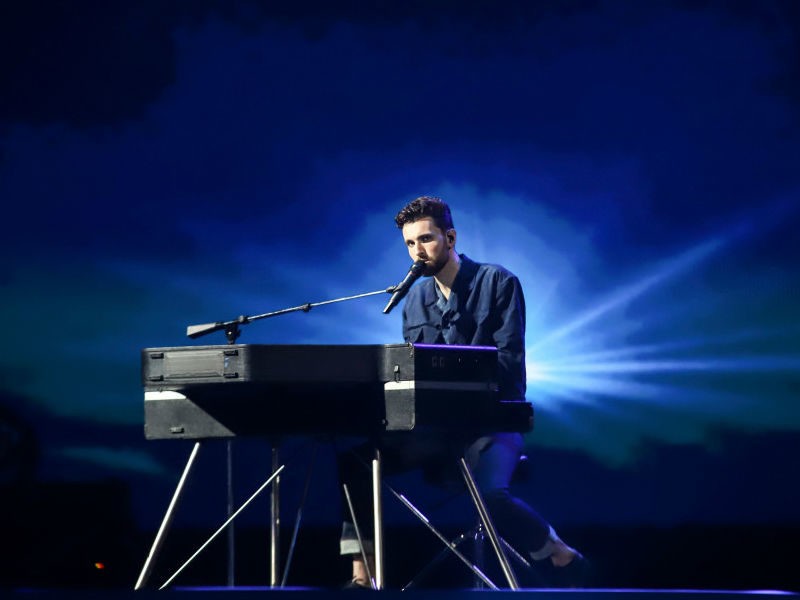
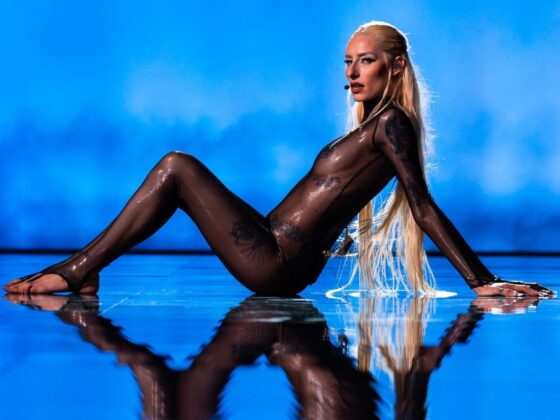
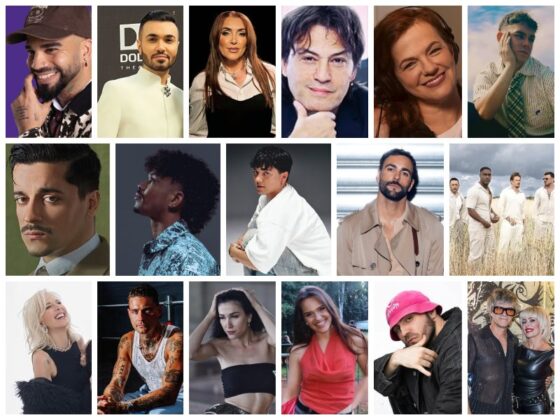

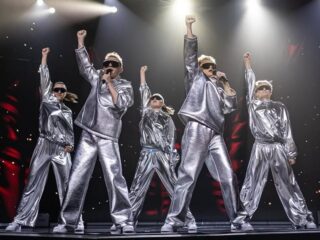
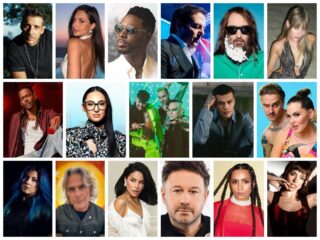

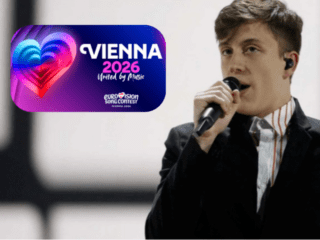
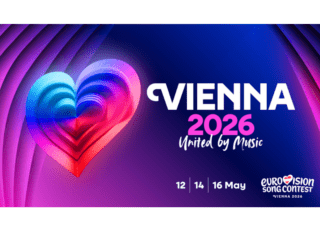
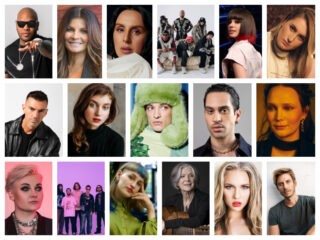

No mention of Mia Nicolai & Dion Cooper drama ?
The Netherlands could’ve been ended the top 5 in 2024 with the high amount of the audience votes, when the EBU have disqualified Israel from the finals of everything else would have been correctly. I would like to see another song that makes the country proud like 2025.
Roxy Dekker hopefully!
Off topic but I think Netherlands has a potential jesc winning song in their NF, so maybe it’s their year and they will be lucky enough this time to get their long-awaited victory.
A jesc victory could reconciliate dutch people with Eurovision maybe.
Netherlands is the country that gave us the biggest Eurovision hit of this century/the esc song most streamed ever but since their victory they are not very lucky, in 2022 and 2025 they deserved to crack the top 10.
I feel like if they keep giving quality acts like S10 and Claude it will pay.